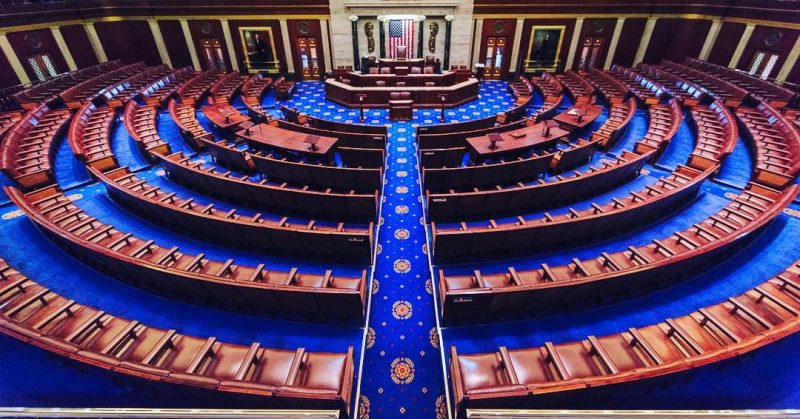The bills need to pass through the US Congress and signed by the President before becoming laws

Five antitrust bills introduced in House of Representatives to rein in the power of tech giants. (Credit: United States House of Representatives or Office of the Speaker of the House/Wikipedia.org)
US lawmakers have placed five antitrust bills in the House of Representatives, the lower house of the US Congress, with an aim to check the monopoly power held by tech giants.
The drafting of the bills by the bipartisan group of lawmakers follows a 16-month probe carried out by an antitrust subcommittee into the powers of Amazon, Google, Apple and Facebook.
The subcommittee found that the tech giants had used their monopoly power to charge high fees, make smaller customers sign unfavourable contracts, and also undertake “killer acquisitions” to unsettle their rivals.
The antirust bills, which have the backing of both the Democrats and the Republicans, include The American Choice and Innovation Online Act, The Platform Competition and Opportunity Act of 2021, The Ending Platform Monopolies Act, The Augmenting Compatibility and Competition by Enabling Service Switching (ACCESS) Act of 2021, and The Merger Filing Fee Modernization Act of 2021.
The American Choice and Innovation Online Act has been made to stop companies from indulging in market manipulation for promoting their own products.
With the Platform Competition and Opportunity Act of 2021, the legislators believe that companies will find it harder to acquire and remove competitors.
On the other hand, the Ending Platform Monopolies Act prevents big tech monopolies from selling products in marketplaces controlled by them.
For making it easier to leave a social media platform and take data to a competitor platform, the legislators have drafted the Augmenting Compatibility and Competition by Enabling Service Switching (ACCESS) Act of 2021.
The lawmakers have prepared the Merger Filing Fee Modernization Act of 2021 bill to enable the Department of Justice and the Federal Trade Commission the resources they need for checking monopoly power, without any cost to taxpayers.
Before being sent to the House floor, the antitrust bills will be referred to the House Judiciary Committee. For the bills to become laws, they will have to first pass through the House of Representatives, then the Senate and, eventually get signed by President Joe Biden.
Public Citizen, an advocacy organisation, has applauded the bills introduced by lawmakers.
Public Citizen president Robert Weissman said: “Big Tech’s unchecked growth and dominance have led to incredible abuses of power that have hurt consumers, workers, small businesses and innovation. That unchecked power ends now.
“This bipartisan package is a huge step toward finally holding these abusive and dominant Big Tech companies accountable and stop them from abusing their monopoly power in nearly every aspect of their businesses.”


